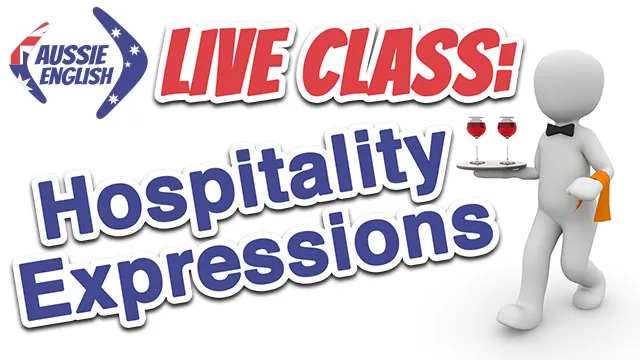AE 262 – What’s the difference between COULD, CAN, WOULD, WILL, SHALL and SHOULD?
Learn Australian English in this episode of Aussie English where I discuss the difference between could, can, would, will, shall and should.
AE 262 – What’s the difference between COULD, CAN, WOULD, WILL, SHALL and SHOULD?
“Hi Pete. This is Aly. I’m one of your English Podcast listener(s*). Could you please show me what are the difference(s*) and use(s*) of these verbs: could, would, can, shall, should etc. Thanks for your efforts mate.”
Hey Aly, thank you so much for leaving me a voicemail via the website.
As a result, I’m going to give you one month’s free access to the Aussie English Supporter Pack.
So, for anyone else who is interested in getting a month’s free access to that, leave me a voicemail via the website.
Jump on the website at www.TheAussieEnglishPodcast.com.
There’s a little purple button on the right hand side.
Click “Leave me a voicemail”, and record a voicemail, and it gets emailed to me. (It’s) that easy.
If it gets featured on one of these episodes I will get in contact with you guys and I will give you one month’s free access to the Aussie English Supporter Pack.
So your question today, Aly, was if I could tell you the difference between the different modal verbs can, could would, should and shall.
This is a pretty complicated question and would require a lot of time for me to go over all of these, but I’m going to try and sort of give you the down low, give you a brief introduction to when and where to use these different modal verbs.
Can & Could
So “can” and “could” are the same as “to be able to”.
And “can”, “could” and “to be able to” are used to express a variety of different ideas in English.
I might just go through them quickly.
They can express the idea of ability or lack of ability to do something.
So the ability or the inability.
For instance, “Tom can write poetry”, “I can help you”, “Lisa can’t speak French”.
That’s all about whether or not you can do something, whether or not you’re able to do something.
And so you can also substitute in “to be able to” instead of “can” in this instance where we’re talking about ability.
So you could say “Tom is able to write poetry”, “I am able to help you”, “Lisa is unable to speak French” or you could say “Lisa is not able to speak French”.
And when we do this in the past tense we use “could”.
So you could say “Tom could write poetry”, “I could help you, yesterday”, “Lisa could speak French when she was young”.
And if you want to substitute in “to be able to” then you have to obviously… with “to be” you have to use “was” or “have been”.
So you would say instead, “Tom was able to write poetry”, “I was able to help you”, “Lisa was able to speak French” or you could say “Tom has been able to…”.
“I have been able to…”. “Lisa has been able to…” etc., depending on the tense you are using.
So there you go.
That’s the first one.
Ability or inability to do something.
We can also use “can” and “could” for possibility or impossibility.
So “You can catch a train at 10:43”.
It’s possible you could do it.
“He can’t see you right now”.
It’s impossible that he sees you.
And again if we do this in the past tense, “You could catch a train at 10:43 yesterday.” or “He couldn’t see you yesterday”.
So that’s possibility and impossibility.
We can also use it for asking permission or giving permission.
So for instance, “Can you lend me ten dollars?”, “You can borrow my car.”, “Could I have your number?”, “Could I talk to you?”.
However, in this form “could” isn’t the past tense.
It’s the conditional tense, I believe.
So it would be like saying “Would I be able to have your number?”, “Could I have your number?”, “Would I be able to talk to you?”, “Could I talk to you?”.
We can also use it when making suggestions.
So we can use “could” to make a suggestion.
“You could take the tour of the castle”, “You could go there tomorrow”, “You could do this”.
And again that’s the conditional.
“You would be able to take the tour tomorrow”, “You would be able to go there”.
However, “could” sounds a lot more natural.
Shall & Should
So “shall” and “should”.
“Shall” and “should”.
And this also goes with “ought to”, but that’s not really used that much at least compared to the other two.
So we can use “shall” or “should” to offer assistance or as a polite suggestion.
And I might add here first “shall” is only used in the first person.
So it can be singular plural. “Shall I…”. “Shall we…”.
But it’s only used with “I” and “we”.
“Shall I…?”, “Shall we…?”, “I shall…”, “We shall…”.
So we can use them to offer assistance or as a polite suggestion.
So, “Shall we go for a walk?”, “Shall I go to the shops and buy some milk?”, “Should I go for a walk?”, “Should I go to the shops and buy some milk?”.
So we can also use “should” as a prediction or an expectation that something is going to happen.
“The proposal should be finished on time”, “I shouldn’t be late, the train usually arrives on time”.
And we can also use it to give advice.
“You should check that document before you send it out”.
And we can also use this when giving advice about something that we think is wrong or unacceptable.
So, “He shouldn’t teach words like that to children.” or “He shouldn’t do that. It’s dangerous”.
Those are examples of something that you would be better not doing, that you shouldn’t do, because it’s unacceptable or it’s wrong.
Will & Would
So the last one that you wanted to go over was “would” and “would” sort of pairs well with “will” when it comes to modal verbs.
“Will” and “would”.
So I might go over both of these.
So “will” and “would” be used for polite requests or statements.
“Will you please take the trash outside?”, “Would you mind if I sat next to you?”, “I would like to sign up for the workshop”.
So polite requests and statements.
You can also use it for habitual past actions.
So we can use “would” to talk about things that we did habitually in the past so something that happened many times that we used to do all the time say as a kid.
For instance, “When I was a child I would spend hours playing video games” or you could say, “Peter wouldn’t eat broccoli as a kid”.
So notice how I’ve said “as a child” or “as a kid I wouldn’t…”. and then… or “I would…”, and then “the thing”.
And that just means that “that thing” happened all the time.
So, “I would spend hours playing video games”, every single day, every single week, every single month.
It happened a lot.
Or, “I wouldn’t eat broccoli” at all dinners.
So periodically, all the time, as a habit.
“I wouldn’t eat broccoli”.
So I hope that helps Aly.
It’s a bit of a shallow attempt at covering those different modal verbs.
It’s kind of hard for me to go into them in great lengths all together.
That would definitely require individual episodes.
So I hope this is kind of helped.
Go over it a few times and try and get sort of the basic idea of how I would or wouldn’t use these.
And then get out there and practice them.
I think that is one of the biggest tips that I can give you for practicing modal verbs and auxiliary verbs is to focus on one at a time, to look for real examples sentences, and then to play with those sentences.
So like conjugate through them using different pronouns. I would rehearse them myself alone in my room.
So I would, like, speak to myself and say things like “When I was a kid I would do this. He would do this. She would do this as a kid. We would do this. They would do this”.
And then, for instance, I would go to “should”.
“I should help. I should do this. I should do that.”
I would try maybe picking one at a time, spend 30 seconds coming up with sentences off the top of your head, and just play with them.
You could also do this writing if you really really want to practice your writing skill and practice these modal verbs.
And I would again conjugate through, use them in as many different ways as you can while writing.
And eventually the meanings are going to sink in and you will do it naturally.
But I think it’s one of those things if you want to chop down a whole forest you do it tree by tree.
You look at the first tree you want to chop down and then you chop that tree down. Repeat the process.
And eventually there’s no more forest.
You don’t look at the forest and think how am I ever going to chop down all these trees.
You just have to do a bit by bit.
Anyway, guys, again, I would just want to mention the Aussie English Supporter Pack.
If you guys haven’t checked it out already.
Jump over to the Aussie English website at www.TheAussieEnglishPodcast.com.
I’ve put a lot of work into this guys, and I’m really trying to create premium content that will allow you guys who sign up to this paid premium content to rapidly increase in your ability of speaking English, writing English, your listening comprehension.
Ultimately, I’m trying to generate an income for myself so that I can more readily help you guys and take them more serious learners to the level that they want to be at sooner, and also be able to keep giving away as much free content as possible.
So if you want to check that out there’s two free example episodes on the website.
You don’t have to pay anything for these.
You can check them out.
You can do the exercises.
You can see what you think.
If you like them, if you want to take your English to the next level then definitely check it out.
If you’re worried about anything, if you have any questions feel free to email me at any time, guys, at TheAussieEnglishPodcast@gmail.com .
I’m always available and I love chatting to you anyway.
So until next time guys I’ll see you later.
And Aly thank you so much for the question.
Thank you so much for leaving me a voicemail.
See you guys.
Here's what you get when you sign up!
- Read while you listen using the Premium Podcast player.
- Understand every word in every episode.
- Download all PDF transcripts and MP3s for 600+ episodes.
- Get access to bonus member-only episodes.












Responses